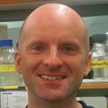
Chris Slape
Really enjoying all the questions I'm getting! Keep asking!
Favourite Thing: Answer questions no one has answered before, and generate new knowledge.
My CV
School:
Aldgate Primary School (R-7), Heathfield High School (8-12)
University:
University of Adelaide, Bachelor of Science (Genetics and Biochemistry), Ph.D University of Adelaide (Molecular Haematology)
Work History:
National Cancer Institute (Washington DC) 5 years, Royal Melbourne Hospital 3 years
Employer:
Monash University (1 year)
Current Job:
Research Fellow
Me and my work
I’m a molecular biologist trying to understand what causes leukemia, and how we might prevent it.
Leukemia is a disease where some cells in the blood develop the ability to divide much faster and survive much longer than normal. I work on a special type of leukemia, myelodysplastic syndrome (MDS), in which a lot of the cells die rather than survive. The cells that do survive in MDS are dysplastic (which means abnormal in appearance), and don’t do their jobs very well. As an example, see the images below. The cell on the left is a neutrophil (a cell type involved in immunity) from a healthy mouse, while the cell on the left is from a mouse with MDS. The purple stain in both neutrophils identifies the nucleus, the part of the cell which contains the DNA. The normal neutrophil’s nucleus has a few bumps (called “lobes”) but is basically a linear structure. The MDS neutrophil’s nucleus is a squiggly mess, and is therefore classified as dysplastic.


One of my projects is to work out how and why the cells die, and how their death can stimulate the remaining cells to divide even faster. My other project is based on genetic mutations which occur in a large number of MDS patients. These mutations are in a specific group of genes, and it’s my job to figure out how they contribute to the disease.
My Typical Day
A balance of lab work, reading and writing. Fit everything in somehow!
There is no such thing as a typical day at work. Some days will be just reading, discussing and writing, other days will be experimental (and experiments can include mouse work, cell work or molecular work) or data analysis, and most days will be a combination of everything. The best part is getting new data and that leading to new ideas, but all the little steps are required to get to that point. The hard part is working out where my time is best spent.
What I'd do with the money
Donate to the African AIDS Foundation, to educate African communities about HIV
Science communication is about enabling people who otherwise wouldn’t benefit from scientific research to do so. The spread of AIDS in African communities is a great example of the importance of communicating scientific knowledge – despite all that we have learned about HIV and AIDS through scientific research, the people in these communities still do not understand that HIV is sexually transmitted and how they can prevent themselves from becoming infected. The African AIDS Foundation is an Australian, non-government organisation working to help communities educate themselves on this important issue.
My Interview
How would you describe yourself in 3 words?
Curiouser and curiouser.
Who is your favourite singer or band?
Kate Miller-Heidke. At the moment, her new CD is constantly playing in my house. And office. And lab.
What is the most fun thing you've done?
Do I have to pick one? I stood on a boat twenty metres from a sperm whale. That was awesome.
If you had 3 wishes for yourself what would they be? - be honest!
Eternal, infinite funding for my research; a house with a yard big enough for a big dog; someone to do my laundry.
What did you want to be after you left school?
I have always wanted to be a scientist, but thought I would be in physics or maths. Biology came later.
Were you ever in trouble in at school?
I doused a schoolyard nemesis in flavoured milk. That didn’t go down well. Also, there were shaving cream fights.
What's the best thing you've done as a scientist?
My current work, showing the importance of cell death in driving leukemic development, is the greatest real world impact I have had. My favourite experiment, though, was one where I inserted a viral sequence into the mouse genome and then had to identify where it went. It was the perfect mix of high tech and low tech, a lot of fun, and produced some fascinating results.
Tell us a joke.
Two chemists walk into a bar. One says, “I’ll have some H2O.” The second one (not a very good chemist) says, “That sounds good. I’ll have some H2O too.” He died.
Sports followed
Baseball, Soccer, Cricket, AFL, NFL
Favourite team
Washington Nationals, Melbourne Heart, Australia!, Port Power, Chicago Bears
My profile link:
https://beryllium.imascientist.org.au/profile/chrisslape/


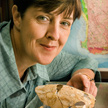
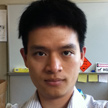
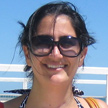
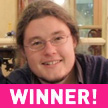

 Print this profile
Print this profile